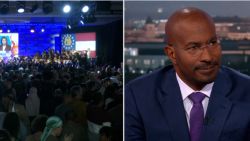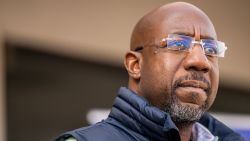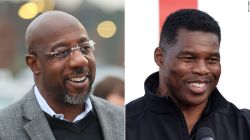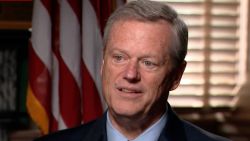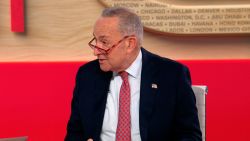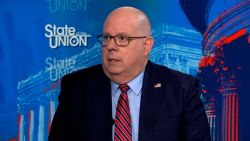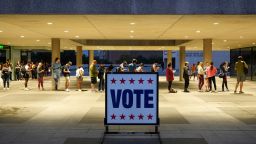Editor’s Note: Peniel E. Joseph is Barbara Jordan chair in ethics and political values and founding director of the Center for the Study of Race and Democracy at the LBJ School of Public Affairs at the University of Texas at Austin, where he is a professor of history. He is the author of “The Third Reconstruction: America’s Struggle for Racial Justice in the Twenty-First Century.” The views expressed here are his own. View more opinion on CNN.
Maryland gubernatorial candidate Wes Moore’s election on Tuesday night offers reason for hope amid the hard partisan divides that continue to shape our national politics.

The Democrat’s victory, which made him the first Black governor of Maryland, and only the third Black governor to be elected in American history (after Virginia’s Doug Wilder and Massachusetts’ Deval Patrick), was not unexpected. His opponent, Dan Cox, who was backed by former President Donald Trump, seemed out of step with Maryland’s independent and swing voters who supported the previous, term-limited Republican Gov. Larry Hogan.
Moore’s compelling biography helped shape his campaign and entrée into the political arena. Moore was a college football player, a Rhodes Scholar, Army paratrooper who was deployed in Afghanistan, former investment banker, bestselling author and CEO of the anti-poverty nonprofit Robin Hood Foundation.
His candidacy injected a spirit of optimism, buoyed by an inclusive vision of American democracy. Moore campaigned on bread-and-butter Democratic Party issues: promoting economic opportunity for all Maryland residents, investing in public education, teacher pay, and restorative justice programs to combat the school-to-prison pipeline, increasing access to health care, implementing compassionate immigration policies, enacting common sense prison reform and protecting reproductive rights for women.
Like Barack Obama’s 2004 campaign for US Senate, Moore’s first nationally significant run for office honed in on his biography. Moore’s personal sincerity helped his campaign brush off allegations that he misled people into believing he is a Baltimore native, when he was actually born in Takoma Park, Maryland, about 30 miles outside Baltimore, and raised primarily in the Bronx (although he attended Johns Hopkins University).
In Moore’s case, these claims helped burnish his reputation as an exceptional young man who, but for the grace of God, might have been lost to some of the urban violence that plagued Baltimore in the 1980s and 1990s.
Moore’s personal biography – despite these minor contretemps – proved more than compelling enough for Maryland voters. After winning a packed Democratic Party primary, Moore emerged as a Black governor ready for central casting – one who will most certainly now be seen as a rising star for a Democratic Party hungry to pass the generational torch of leadership.
During a midterm cycle where pundits, journalists and forecasters predicted an ominous red wave of Republican voters who would halt President Joe Biden’s agenda, Moore’s victory stood out as a particularly bright spot for a Democratic Party reeling from inflation, voters’ anxieties about crime and the Supreme Court decision to overturn Roe v. Wade. What are the lessons to be learned from Moore’s victory?
First, leadership and character matter. Moore’s obvious intelligence, military service and experience leading a non-profit impressed voters who considered him a capable steward, regardless of whether they agreed with his politics.
Second, values matter. Moore won the Maryland gubernatorial race not by tacking to the center but by molding a statewide consensus around values of equity, inclusion, opportunity and justice that don’t belong to any single party but are universal virtues we all aspire to.
Third, multiracial democracy remains the key to America’s future. Moore’s identity as a Black man running for governor is notable since it goes against the grain of our history and reflects the future of our national destiny.
Get our free weekly newsletter
- Sign up for CNN Opinion’s newsletter.
- Join us on Twitter and Facebook
Black leadership has been sorely lacking at the national level. As the state’s chief executive, governors are the literal and figurative face of the commonwealth. Moore’s election in Maryland now offers the Democratic Party – and the entire nation – a potential blueprint to escape the endless political, racial and ideological divisions stoked by anxiety and fear that appeal to the nation’s worst impulses.
A campaign based on championing equal opportunity, compassion for the incarcerated, education for all children, and hope in the future can not only win, but prove infectious enough to spread across the country. Wes Moore’s victory has recaptured some of the magic that has been lost in our politics in the tumult of the past few years. Hopefully, this is just the beginning.



